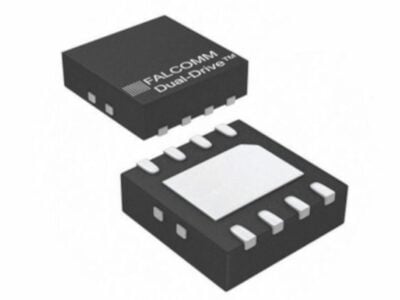
Intel buys Movidius to ramp computer vision
Intel did not disclose the price being paid for Movidius, which was founded in Dublin in 2006 and has raised about $90 million since its formation. A $40 million Series E fund raising round in 2015 valued Movidius at about €250 million (about $280 million) according to reports.
Movidius has developed a couple of generations of video processor, the most recent being the Myriad 2 a many-core vision processing unit that because it includes a number of fixed function accelerators can achieve performance at low-power. More recently the company has started to consider the use of its 128bit VLIW SIMD architecture as a platform for machine learning software and has worked closely with Google (see Google prototypes depth-sensing mobile phone and Movidius shows neural network stick).
The company went through a management change in 2013 with the appointment of Remi El-Ouazzane as CEO and the relocation of its headquarters to Silicon Valley.

Left: Josh Walden, senior vice president of new technologies at Intel, and right, Remi El-Ouazzane, CEO of Movidius.
“Our leading vision processing unit platform for on-device vision processing combined with Intel’s industry leading depth sensing solution – Intel RealSense technology – is a winning combination for autonomous machines that can see in 3D, understand their surroundings and navigate accordingly. Today, we’re working with customers like DJI, FLIR, Google and Lenovo to give sight to smart devices including drones, security cameras, AR/VR headsets and more,” said El-Ouazzane, in a statement.
Josh Walden, senior vice president of new technologies at Intel, said that Intel is acquiring a number of companies and technologies to put around its RealSense 3D camera. He said that Movidius’ technology would form the visual cortex that complements cameras (eyes) and CPU (brain) of a modern computing system.
Computer vision enables navigation, mapping, collision avoidance, object recognition, tracking and analytics and more beside, Walden said.
Recent acquisitions by Intel include machine learning hardware company Nervana Systems Inc. (see Intel to Acquire Deep Learning Nervana) and cognitive computing software company Saffron Technology Inc.
It was not made clear whether Movidius would continue to operate as a subsidiary company or would be integrated into Intel’s business structure. Saffron continues to operate as a wholly-owned subsidiary company at present.
“With Movidius, Intel gains low-power, high-performance SoC platforms for accelerating computer vision applications,” said Walden. He added: “Computer vision will trigger a Cambrian explosion of compute, with Intel at the forefront of this new wave of computing, enabled by RealSense in conjunction with Movidius and our full suite of perceptual computing technologies.”
Related links and articles:
News articles:
Google prototypes depth-sensing mobile phone
Movidius shows neural network stick
Intel to Acquire Deep Learning Nervana
 If you enjoyed this article, you will like the following ones: don't miss them by subscribing to :
eeNews on Google News
If you enjoyed this article, you will like the following ones: don't miss them by subscribing to :
eeNews on Google News




